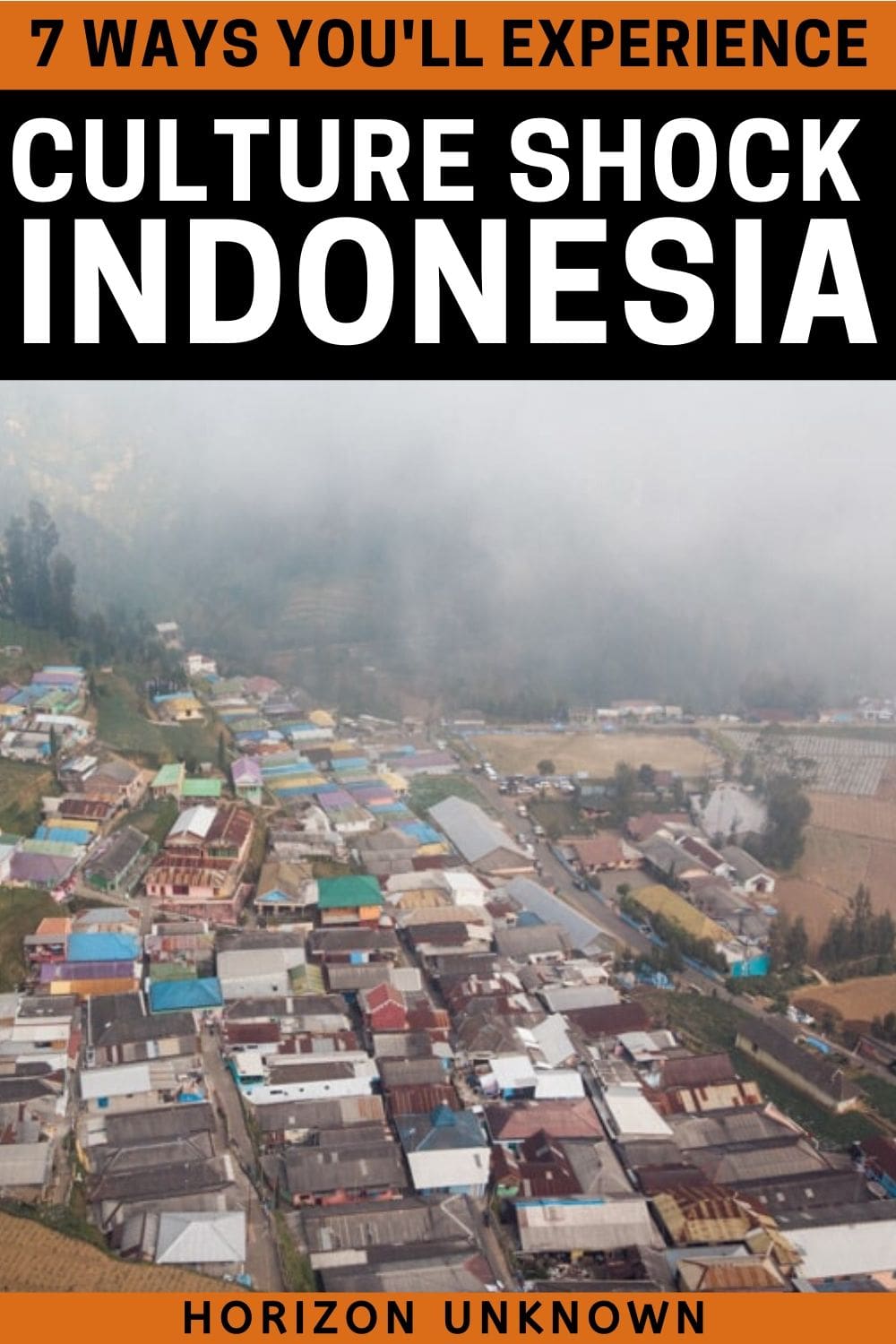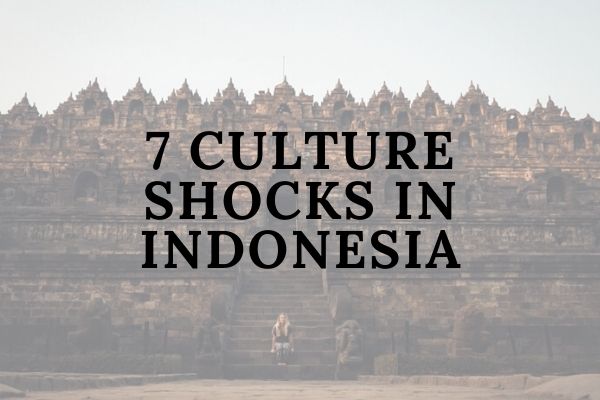Culture shock in Indonesia can surprise even the most seasoned travelers. To take about the cultural differences in Indonesia, specifically Yogyakarta, Maddie and James from the Wanderus Living talk about the 7 types of shock they experienced throughout this beautiful country.
Southeast Asia as a whole is becoming more and more popular among travelers of all kinds, and people don’t realize just how different Indonesian culture is. Culture shock never seemed to be a real thing until I experienced it first hand in Yogyakarta, Wonokitri, and eventually Bali.
I had traveled to Alaska, France, Italy, Switzerland and Macedonia which made me feel confident in my ability to adapt and feel comfortable in my environments.
Before you start to panic and think that life in Indonesia is going to cause you to have major anxiety… relax.
One of the highlights of our trip and the most memorable aspects are the people of Indonesia. Most people were so friendly and helpful with tourists and would try their best to communicate with us and help when needed.
The people of Indonesia really helped us feel at home and welcomed us to their country.
The degree to which poverty, overcrowded population, food and customs vary from your home state or country might help contribute to culture shock. The levels of poverty in the United States are nothing compare to that of those in Indonesia and parts of Southeast Asia in general.
Want to learn more about the 5 stages of cultural shock?
Experiencing Culture Shock in Indonesia – Yogyakarta
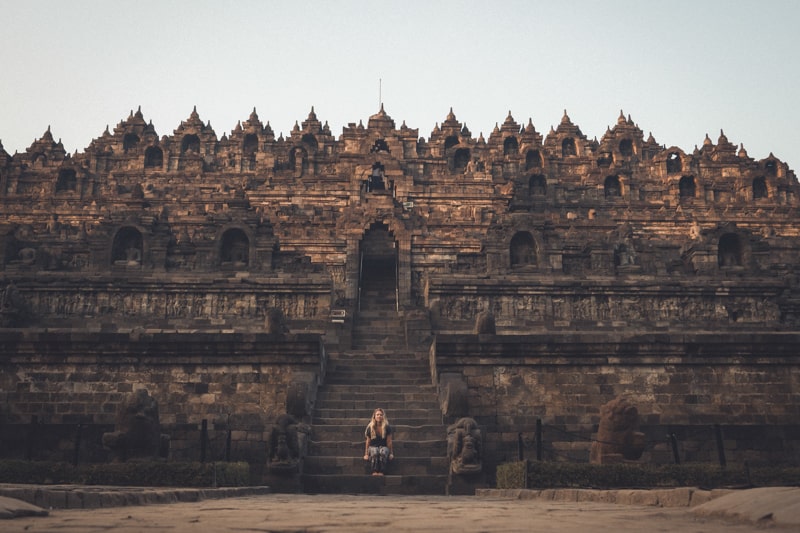
I thought I wasn’t going to experience culture shock, I was wrong. The first week in Indonesia felt like an entirely new world to me and I felt more uncomfortable than I had ever before in my life. The first place Maddie and I visited during our time in Indonesia was the city of Yogyakarta.
Often referred to as Yogja, the city is one of the most crowded in all of Indonesia and is much more under-developed and less touristy compare to places such as Jakarta or the Island of Bali.
Depending on where you decide to visit in Indonesia culture shock is going to set in, and it’s important to know you will be fine. If you go to Bali first, the culture shock won’t hit as hard, because Bali is very touristy with westerners and is much more developed then other places. If your first destination is Yogja, Wonokitri or Sumba than the degree to your culture shock will certainly be higher.
1. Religion in Indonesia – Islam, Buddhist, Hinduism
You might be surprised to learn that the majority of Indonesia’s population practices some sort of Islam. Most tourists don’t know this because Bali is predominantly Hinduism, which originated in Java. Depending on what area of Indonesia you visit you could encounter Islam, Catholic, Hindu or Buddhist.
In the regions of Java and Bali religion is taken very seriously. You will see offerings ever morning called Canang Sari on the streets, in homes and around temples. Indonesia is a huge country that spans multiple Islands and is the world’s largest Island Country.
Another part of Indonesian religions is how you can dress or what you can wear inside temples or religious buildings. A lot of temples or religious monuments will require you to wear a sarong to cover your legs before entering.
2. Westerners in Indonesia – We Stand Out
When it comes to culture shock in Indonesia, the very 1st thing that stood out to me was that I look different and everyone was watching me. Walking around the city of Yogyakarta, and the temples of Prambanan was one of the weirdest experiences.
Local Indonesian kids, adults and soccer teams were coming up to us nonstop asking to take pictures. A lot of them had never seen white people before and were so excited to see us.
It got frustrating after the 50th picture because we were not able to enjoy our time at the temples. We are happy that they wanted to take pictures and liked us, rather than not liking us and making us feel unwelcomed. Most of the locals who were taking pictures with us were really nice and friendly.
You will experience this feeling everywhere besides Bali, because of how touristy Bali is. Every local in Bali has seen a tourist, so don’t expect to feel like a celebrity when you arrive!
3. Traffic and Roads in Indonesia – Culture Shock
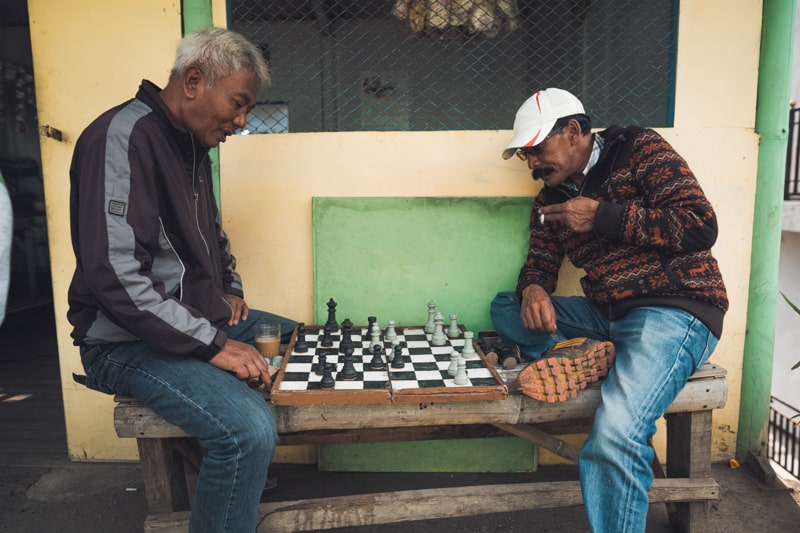
One of the first experiences of culture shock that you will likely face is realizing how bad the road and traffic congestion in ALL of Indonesia are. No matter what part of Indonesia you are on (unless a remote island) the traffic and roads, in general, are horrible. In Southeast Asia scooters are the most popular way to get around by far and cars come second.
Another shocking part about Indonesia was that there aren’t really any road rules or “nice” driving. Everyone weaves in and out of traffic and it isn’t considered rude or road rage over in Indonesia. You can rent a scooter in Indonesia for around $20 for an entire week.
4. Weather in Indonesia – Humidity and Rain
When it comes to traveling to Southeast Asia as a whole it is crucial to understand what time of the year you want to visit. Indonesia has its offseason/rainy season in which is rains a lot and experience monsoons multiple times a week.
The most popular destination in Indonesia is the island of Bali which can get very humid around February and March. Living in the Northeast of the United States, this humidity had my sweating all day long.
August and September are Indonesia most popular tourist season because it is the least humid, and barely gets any rain compared to February. Indonesia is a huge country spread out across the Java and Flores Sea.
This means that temperatures, humidity and rainfall can vary greatly depending on what specific region you choose to visit.
5. Language Barrier in Indonesia – Do Indonesians speak English?
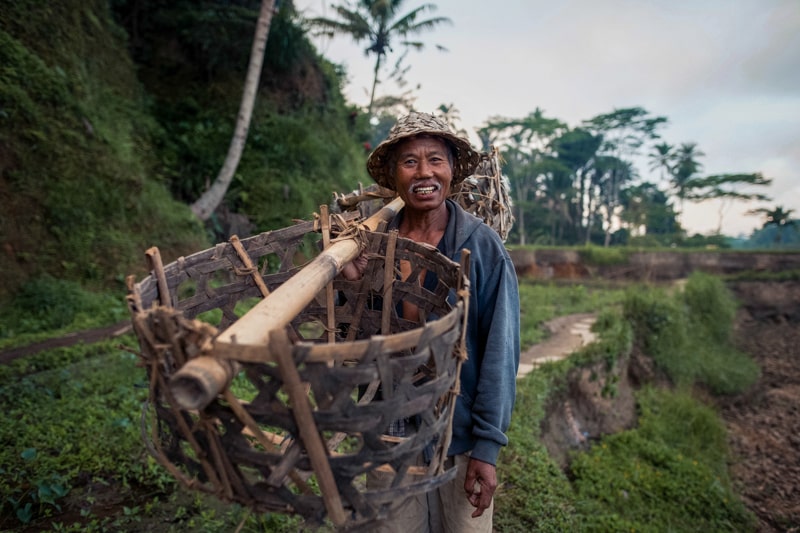
The short answer is that it depends… If you are in a place like Bali, you are sure to find English speaking Indonesians all around. If you are in a more rural area like Yogyakarta or Wonokitri you will have little luck finding English speaking people. The native language in Indonesia is Indonesian.
We took some notes on our phones during our stay in Indonesia to look at when we tried to communicate with locals who couldn’t speak great English.
6. Restaurants in Indonesia
One of the first things that we noticed while eating out in Indonesia is that there is NO rush for food and drinks. In the United States, food and drinks are rushed out to customers, yet Indonesia is a lot more relaxed and laid back. On multiple occasions, we waited over an hour to get our food because of the slow service. Maddie and I were both impatient the first few times until we realized it was just normal for Indonesia.
So, be patient when it comes to service. The food in Indonesia consists of eggs, rice, chicken, beef, fish, noodles and vegetables. That will cover about 90% of the meals in Indonesia so be prepared!
7. Alcohol and Drugs in Indonesia
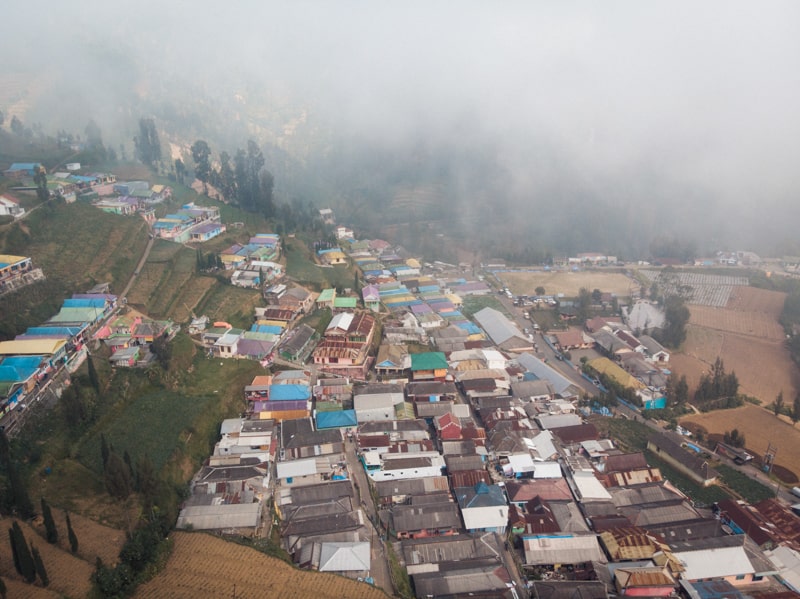
You may think that Indonesia has relaxed laws on drugs but you are wrong! Drug Laws are extremely strict and unforgiving in Indonesia. In January 2020, an Indonesian court sentenced a California man to 9 years for selling 6.6 grams of cocaine and 23.7 grams of marijuana in Bali. Indonesia and specifically Bali wants to be known as a clean and attractive tourist destination because it is their main source of income and growth.
The legal age to purchase alcohol in Indonesia is 18, but there is no legal age for drinking. Be aware that there are often police checks for alcohol and international driver’s license, so don’t get caught either way. The best beer in Bali is Bintang, which can be found at almost any convenience store.
Indonesia Culture Shock Summary
Experiencing culture shock in Indonesia can be a scary thing because to some travelers it might feel like you are in an entirely new world. This is normal for so many of us, but it is important to be understanding and not judgmental.
At the end of the day, we are guests and tourists of another country and it is important for travelers to respect that and be understand if the differences. Almost all travelers who have been to Indonesia will talk about how friendly the locals are, and this is completely true.
Places like Bali, Sumba, Java and Raja Ampat are some of the most beautiful places to visit in Indonesia. They all have their own unique culture and experience which makes Indonesia so attractive. As a traveler be sure to respect cultures, customs and to be accepting of all the new experiences because the small things are what will remember the most.
About Wanderus Living
Maddie and James from Wanderus Living are traveling around the United States and Canada in their Jeep and travel trailer. They travel around while blogging about off the beaten path destinations and unique travel stories.
Do you have a different experience in Indonesia? Let everyone know in the comments below and don’t forget to share this post to social media!
Thanks for reading!
Happy and safe travels,
Ben – Horizon Unknown
